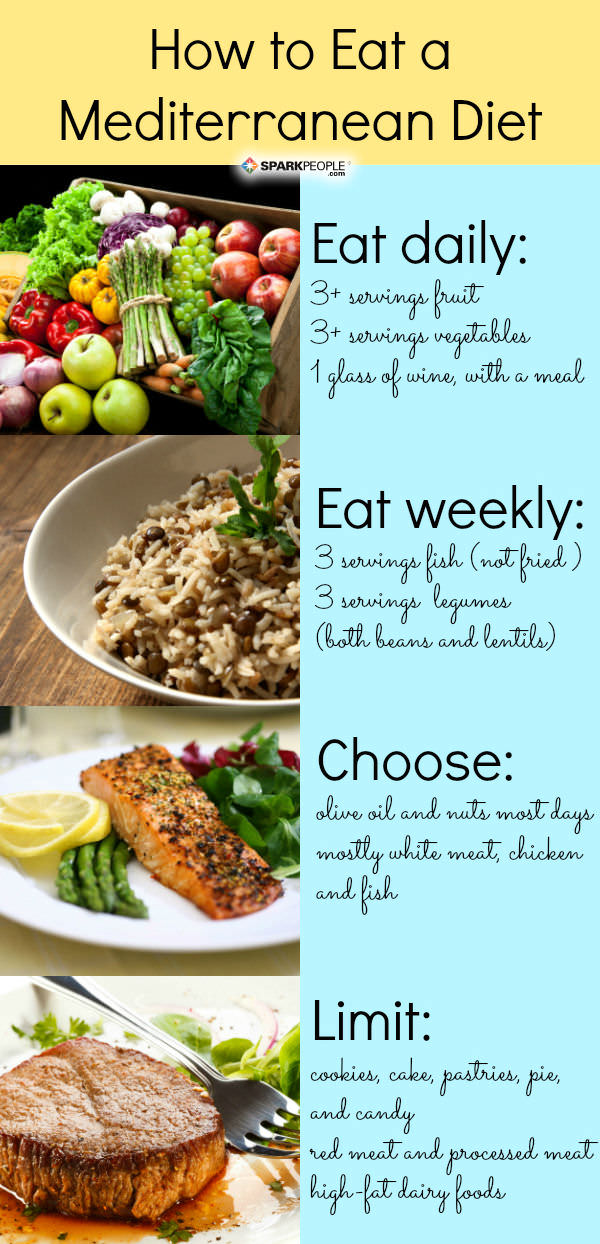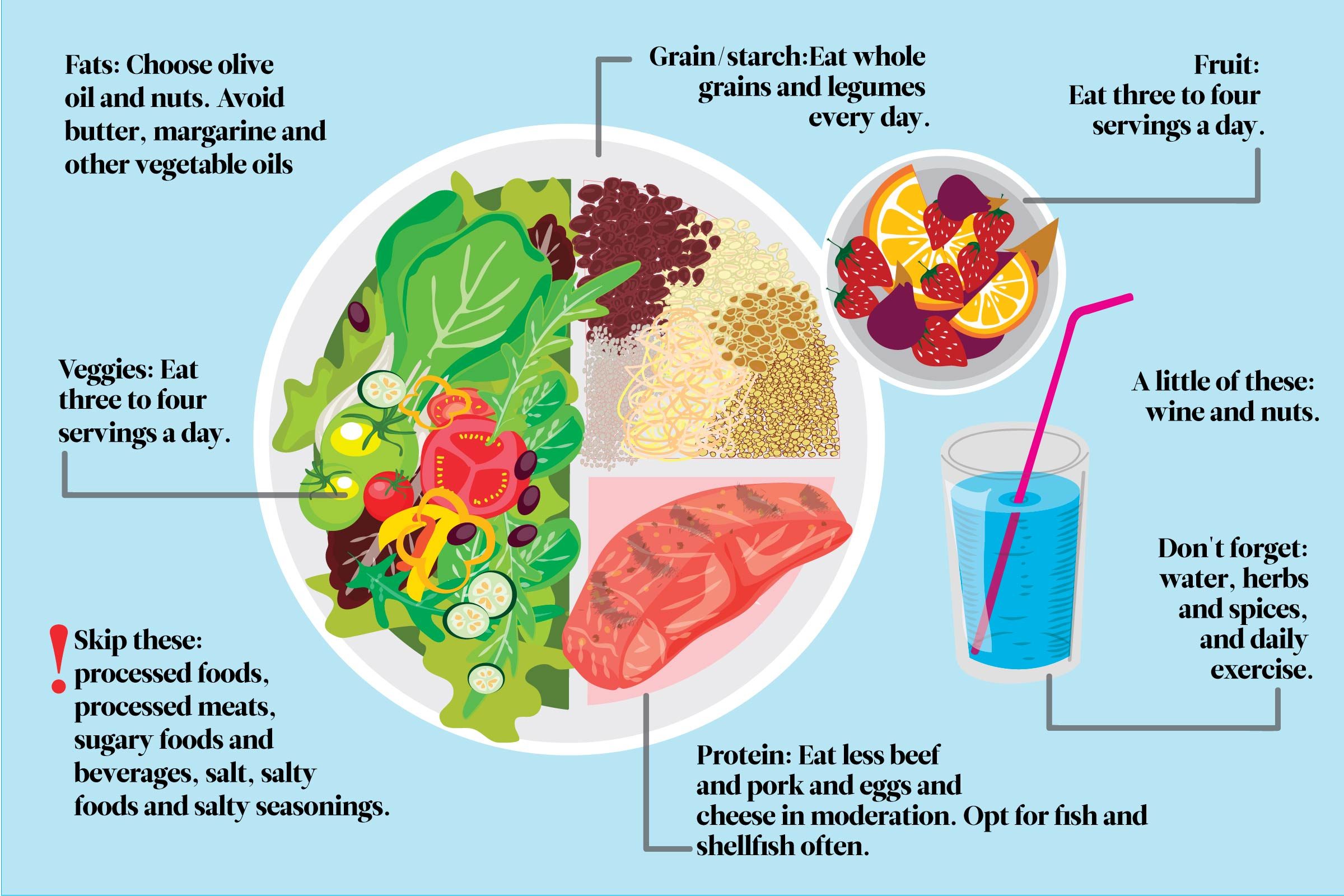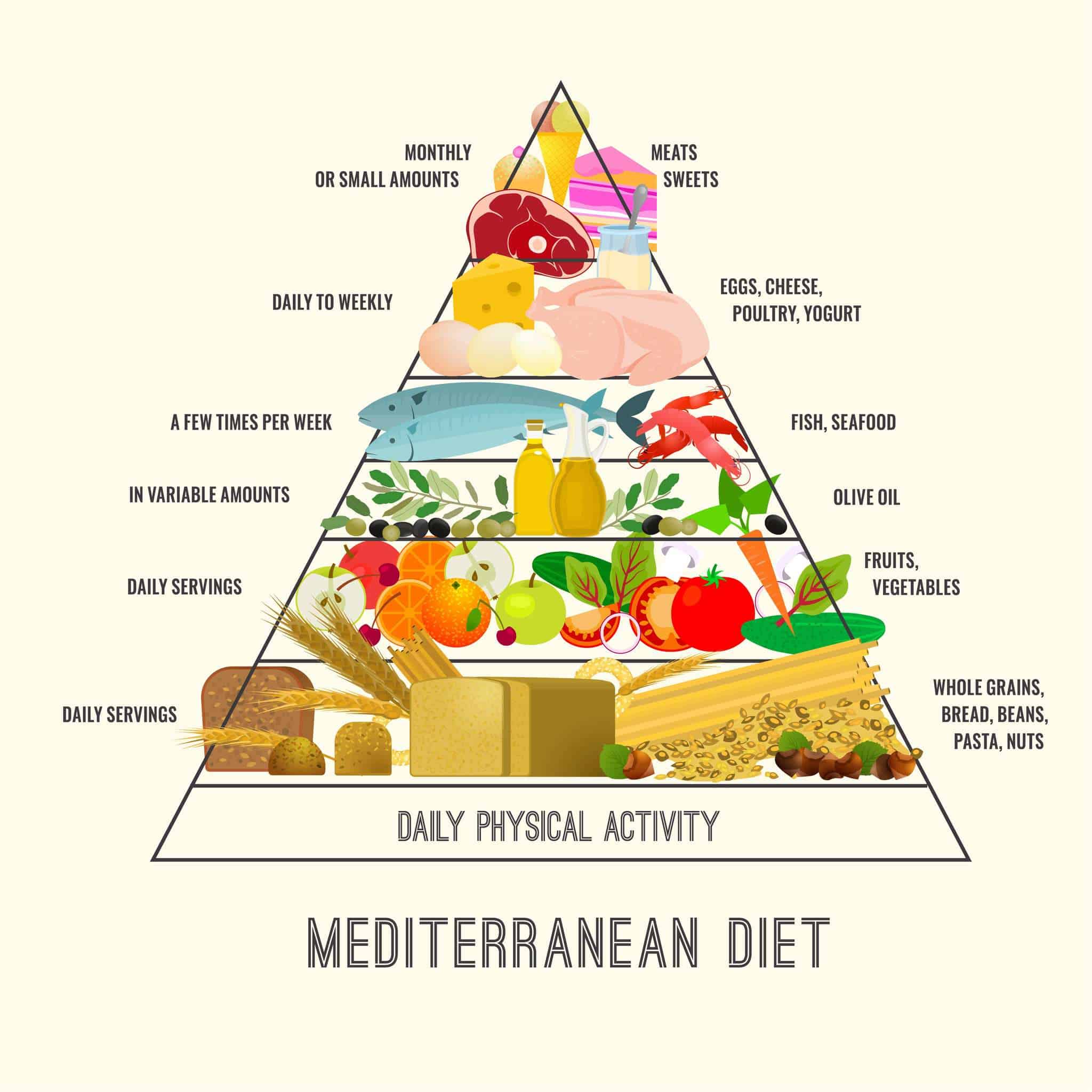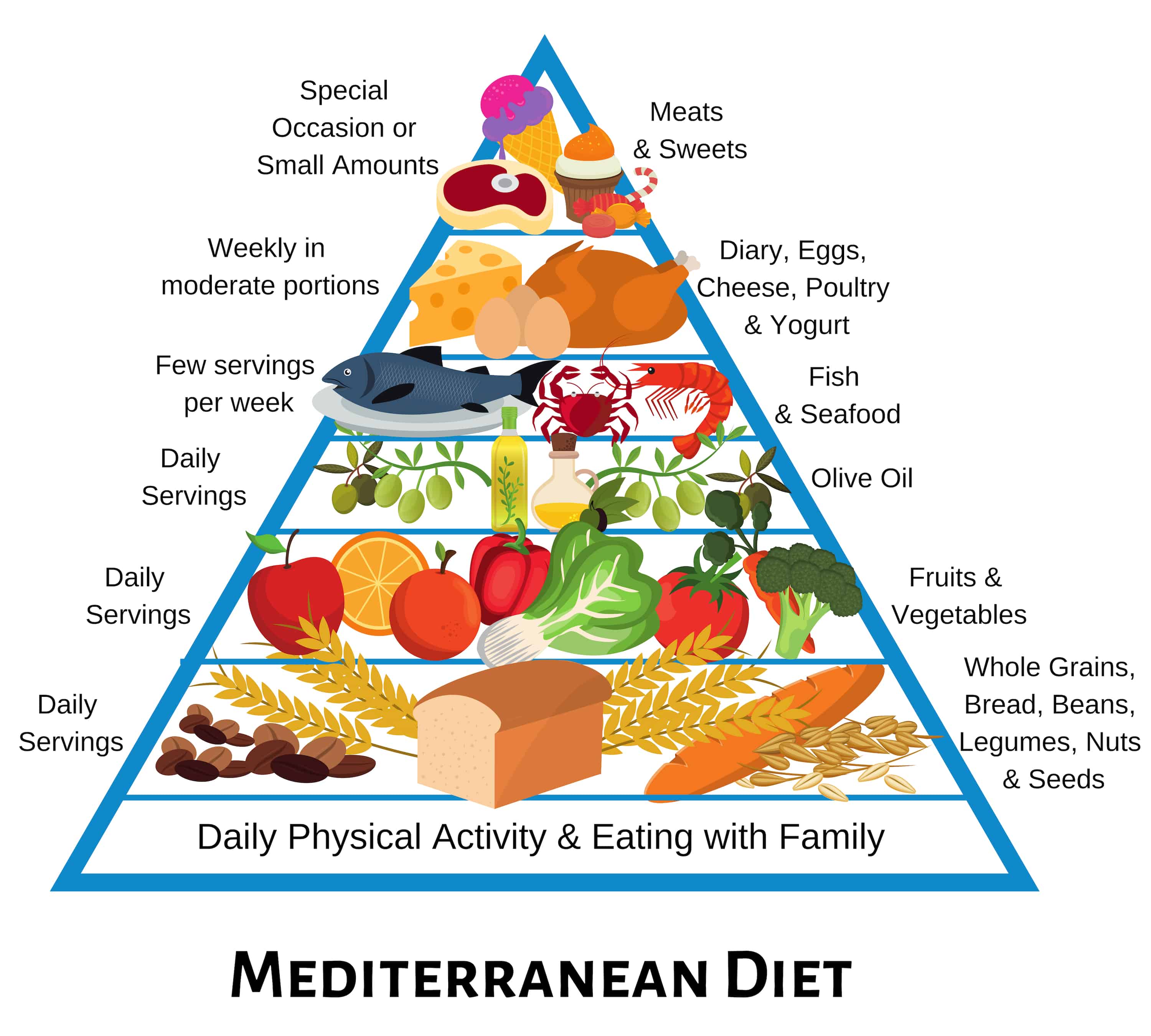Mediterranean Diet A Heart Healthy Eating Plan
The Mediterranean Diet: A Heart Healthy Eating Plan
What is the Mediterranean Diet?
The Mediterranean Diet is a heart healthy eating plan that is based on the traditional foods and recipes of countries bordering the Mediterranean Sea. It is rich in fresh fruits and vegetables, olive oil, whole grains, fish, and seafood, and has moderate amounts of lean poultry, eggs, dairy, and red wine. The Mediterranean diet has been scientifically linked to health benefits such as reducing heart disease risk, helping with weight loss, improving blood sugar levels, and reducing inflammation.
Benefits of the Mediterranean Diet
The Mediterranean diet has been linked to many health benefits, including reducing the risk of heart disease. Studies have found that the diet helps to lower blood pressure, reduce bad cholesterol (LDL) levels, and reduce the risk of stroke. It has also been linked to improved blood sugar levels and a reduced risk of type 2 diabetes. Additionally, the Mediterranean diet can help with weight loss and is associated with a decreased risk of obesity and metabolic syndrome.
Foods to Include in the Mediterranean Diet
The Mediterranean diet is based on the traditional foods and recipes of countries bordering the Mediterranean Sea. It is rich in fresh fruits and vegetables, olive oil, whole grains, fish and seafood, and has moderate amounts of lean poultry, eggs, dairy, and red wine. It is important to focus on fresh, whole foods, including plenty of fruits and vegetables, whole grains, legumes, nuts, and seeds. Other foods that should be included in the Mediterranean diet are olive oil, fish, seafood, and red wine in moderation.
Foods to Avoid in the Mediterranean Diet
It is important to limit or avoid processed and refined foods, such as white bread, white pasta, and white rice. Additionally, it is important to limit or avoid red meat, sugary drinks, and processed meats such as bacon, sausage, and deli meats. Refined oils such as canola or vegetable oil should also be avoided, and instead, olive oil should be used for cooking and dressing.
Tips for Following the Mediterranean Diet
In order to follow the Mediterranean diet, it is important to focus on fresh, whole foods, including plenty of fruits and vegetables, whole grains, legumes, nuts, and seeds. Olive oil should be used as the primary source of fat in cooking and dressing, and it is important to limit or avoid processed and refined foods, as well as red meat, sugary drinks, and processed meats. Additionally, it is important to incorporate physical activity into the diet, such as walking, running, swimming, or biking.
Conclusion
The Mediterranean diet is a heart healthy eating plan that is based on the traditional foods and recipes of countries bordering the Mediterranean Sea. It is rich in fresh fruits and vegetables, olive oil, whole grains, fish and seafood, and has moderate amounts of lean poultry, eggs, dairy, and red wine. The Mediterranean diet has been linked to many health benefits, including reducing the risk of heart disease, helping with weight loss, improving blood sugar levels, and reducing inflammation. In order to follow the Mediterranean diet, it is important to focus on fresh, whole foods, use olive oil as the primary source of fat, limit or avoid processed and refined foods, red meat, sugary drinks, and processed meats, and incorporate physical activity into the diet.
Mediterranean diet for heart health - Mayo Clinic
How to Eat a Mediterranean Diet for Heart Health | SparkPeople

Mediterranean diet: Facts, benefits, and tips in 2020 | Mediterranean

Mediterranean Diet Infographic Cheat Sheet | Reader's Digest

Pin by Kathy on Mediterranean Diet | Mediteranean diet, Mediterranean

The Mediterranean Diet is an eating pattern or approach versus a single

Health Benefits of the Mediterranean Diet - My Greek Dish

Get HEART healthy with the Mediterranean Diet! | Moms Gone Zen
Why the Mediterranean diet is still the best way to lose weight

Mediterranean Diet Versus Macrobiotic Diet | SHI Macrobiotics
